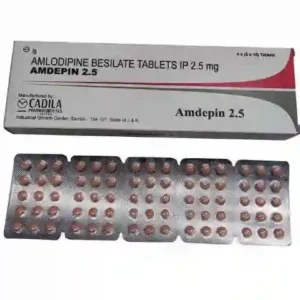Antidepressants are a class of medications primarily used to treat depressive disorders, including major depressive disorder, as well as other mental health conditions such as anxiety disorders and certain chronic pain conditions. They work by altering the balance of neurotransmitters (chemical messengers) in the brain, which can help improve mood and relieve symptoms associated with these conditions. There are various types of antidepressants, each with its own mechanism of action and potential side effects. Here are some common types of antidepressants:
- Selective Serotonin Reuptake Inhibitors (SSRIs): These are the most commonly prescribed antidepressants and include drugs like fluoxetine (Prozac), sertraline (Zoloft), and escitalopram (Lexapro). SSRIs increase the levels of serotonin in the brain, which is associated with mood regulation.
- Serotonin-Norepinephrine Reuptake Inhibitors (SNRIs): SNRIs, such as venlafaxine (Effexor) and duloxetine (Cymbalta), work by increasing the levels of both serotonin and norepinephrine. They are often used for conditions like generalized anxiety disorder and certain chronic pain syndromes.
- Tricyclic Antidepressants (TCAs): TCAs, like amitriptyline and imipramine, were among the first antidepressants developed. They have more side effects compared to newer drugs and are now less commonly prescribed. They affect the levels of several neurotransmitters in the brain.
- Monoamine Oxidase Inhibitors (MAOIs): MAOIs, such as phenelzine and tranylcypromine, are older antidepressants. They work by inhibiting the enzyme monoamine oxidase, which breaks down neurotransmitters like serotonin and norepinephrine. MAOIs are generally used when other antidepressants have not been effective, but they have dietary and drug interaction restrictions.
- Atypical Antidepressants: This category includes a diverse group of medications, such as bupropion (Wellbutrin), which primarily affects dopamine and norepinephrine levels, and mirtazapine (Remeron), which affects serotonin and norepinephrine levels.
- Antipsychotic Medications: Some atypical antipsychotic medications, such as aripiprazole and quetiapine, are sometimes used as adjuncts to antidepressants to enhance their effects in certain cases.
- Other Emerging Treatments: In recent years, new treatments like ketamine and esketamine nasal spray have been approved for treatment-resistant depression. They work differently from traditional antidepressants and are administered in a clinical setting.
It’s essential to note that the choice of an antidepressant depends on an individual’s specific diagnosis, symptoms, medical history, and the potential side effects of the medication. It’s crucial to work closely with a healthcare provider, typically a psychiatrist, who can assess your condition and recommend the most appropriate treatment. Antidepressants are usually prescribed as part of a broader treatment plan that may include therapy, lifestyle changes, and other interventions to manage depression and related conditions. Additionally, they should be taken as directed and monitored for effectiveness and side effects under a healthcare professional’s care.





Reviews
There are no reviews yet.